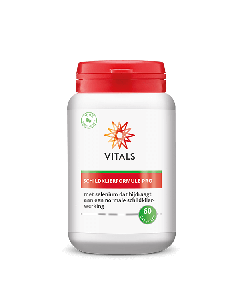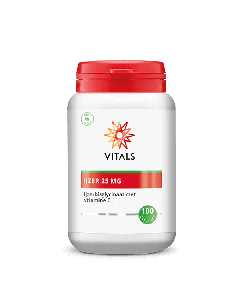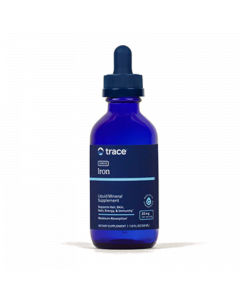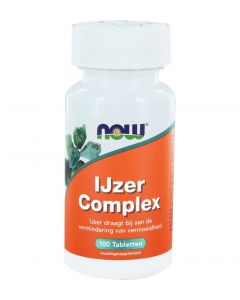-
 Vitals - Schildklierformule Pro - 60 capsules - OPRUIMINGShipped todaySpecial Price € 29.95 € 34.95
Vitals - Schildklierformule Pro - 60 capsules - OPRUIMINGShipped todaySpecial Price € 29.95 € 34.95 -
 Nordic Naturals - Men's Multivitamin Extra Strength - 60 tabletsOut of stockSpecial Price € 39.95 € 44.95
Nordic Naturals - Men's Multivitamin Extra Strength - 60 tabletsOut of stockSpecial Price € 39.95 € 44.95 -
 Nordic Naturals - Women's Multivitamin - 60 tabl - CLEAROUTOut of stockSpecial Price € 36.95 € 44.95
Nordic Naturals - Women's Multivitamin - 60 tabl - CLEAROUTOut of stockSpecial Price € 36.95 € 44.95
- Shipped today!
- Free shipping from € 45
- Postpay possibility
- Review score 9.4
- Earn reward points
- Shipped today!
- Free shipping from € 45
- Postpay possibility
- Review score 9.4
- Earn reward points


Iron
What is Iron?
Iron is an essential dietary mineral, the body cannot produce its own, therefore we need to ingest iron from food, beverages and in some instances supplements. Iron has a critically important role to play in performance and more importantly in supporting general health. For example Iron has a role in physical growth, neurological development, cell function and creation of some hormones.
The biggest challenge for iron is not it’s absolute intake but rather the portion available for absorption. Animal foods generally have ~40% (10-30%) absorption while plant-based foods are ~5% (2-10%) (Source: NCBI). These values will obviously vary depending on the food source and study in question, as a general heuristic animal-based iron will be 8-10 times better absorbed.
How do I consume more Iron?
Importantly, although plant-based sources of iron have poor absorption rates, below are some strategies/tips you can implement to improve it (Source: NCBI):
- Avoid calcium supplements at iron rich meals
- Avoid/restrict coffee and tea during, 1 hour before and after meals.
- Using a cast iron pan for cooking
- Consume vitamin C rich foods at the same meal (peppers, strawberries, tomatoes, citrus fruits, green leafy vegetables, broccoli and potatoes)
- Consume iron rich foods where appropriate (seafood, oysters, bread, flour, dried legumes, hazelnuts, almonds, leafy, broccoli, figs, raisins, cocoa)
Collectively, using these strategies can help iron absorption and maintenance of iron status. However, there are many cases, especially in females where iron requirements cannot be met through food alone (Source: NCBI). This is where supplementation can help top up suboptimal dietary iron intake to ensure bodily requirements are met.
Who needs an Iron Supplement?
Negative iron balance can occur for a variety of reasons, including but not limited to: insufficient dietary iron intake, menstruation, vegan/vegetarian diets increased iron losses associated with running, sweating, gastrointestinal bleeding and exercise induced acute inflammation (Source: NCBI).
What happens if you don't get enough Iron?
Deficiency can manifest as mild or extreme fatigue, increased infections or days of illness, and iron deficiency anemia sets in. In the short term consuming insufficient iron is not an issue are we have stores in the liver, spleen, muscle and bone marrow. Iron deficiency anemia occurs when red blood cells become smaller and contain less hemoglobin, leading to impaired oxygen transport from the lungs to the rest of the body. Symptoms can manifest as weakness, irritability, fatigue, tiredness, lack of energy, issues with concentration and memory (Source: NCBI).
Key Health Aspects of Iron
Consuming a plant-based diet can make it more difficult to meet iron requirements, although there are many benefits shown in research to consuming a plant-based diet, consuming and absorbing sufficient iron can at times be a tall order. Low dose supplementation can help, especially women who have over 100% greater requirements than men. Recommended intakes in Europe are 8 mg for men and 18 mg for Females.
- Transports oxygen in the body
- Promotes immune function
- Involved in energy production
Energy Production
Iron is a key micronutrient in the energy production pathways and is a component of hemoglobin and myoglobin, which transport oxygen from the lungs to the blood and muscle, respectively. Oxygen is needed for some of the energy production systems to generate ATP the energy currency of the body.



